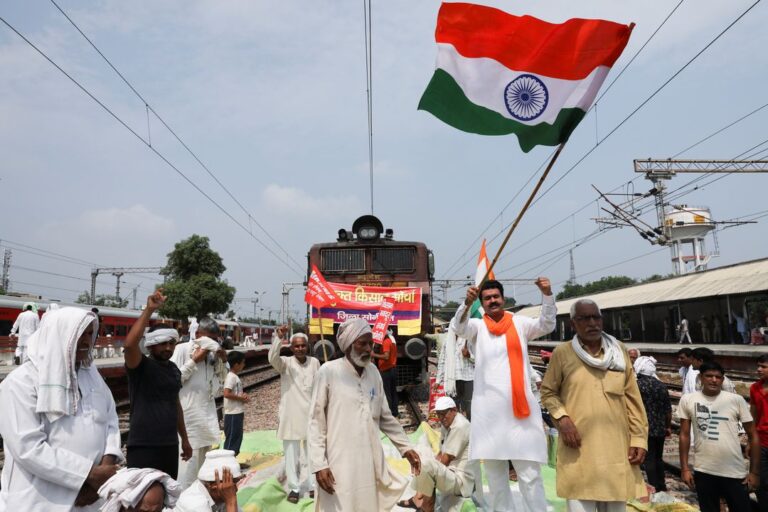
(Reuters) – Indian farmers opposed to reforms they say threaten their livelihoods aim to renew their push against the changes with nationwide protests on Monday, a year after laws on the liberalisation of the sector were introduced.
For 10 months, tens of thousands of farmers have camped out on major highways around the capital, New Delhi, to oppose the laws in the longest-running growers’ protest against Prime Minister Narendra Modi’s government.
“Thousands of farmers have spread out to different districts to ensure a complete nationwide strike aimed at reminding the government to repeal the laws introduced to favour large private corporations,” Rakesh Tikait, a prominent farmers’ leader, told Reuters.
This month, more than 500,000 farmers attended a rally in the most populous state of Uttar Pradesh, the biggest yet in the protest campaign, to step up pressure on Modi’s administration to repeal the laws.
The legislation, introduced in September last year, deregulates the agriculture sector and allows farmers to sell produce to buyers beyond government-regulated wholesale markets, where growers are assured of a minimum price.
Small farmers say the changes make them vulnerable to competition from big business, and that they could eventually lose price supports for staples such as wheat and rice.
The government says the reforms mean new opportunities and better prices for farmers.
Farming sustains almost half of India’s more than 1.3 billion people and accounts for about 15% of the $2.7 trillion economy.
Farmer union leaders say their protests would not disrupt emergency services.
“We will also make sure that the strike remains peaceful,” Tikait said.
The protests have been generally peaceful but police and farmers clashed in New Delhi in January during a tractor procession and one protester was killed and more than 80 police were injured.






